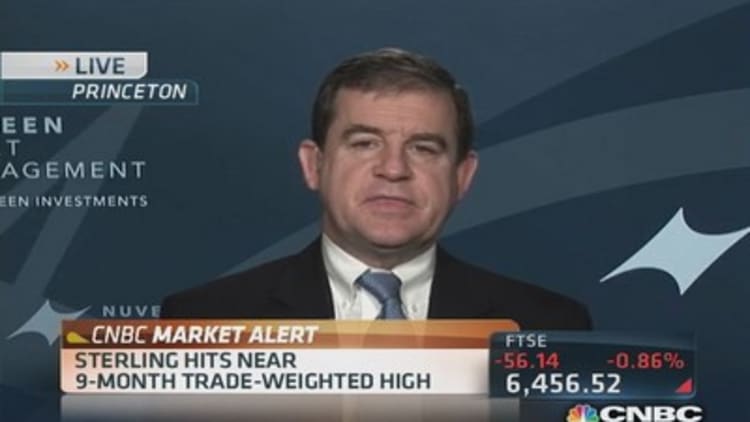
Stocks may have seen the highs for the year if there's a prolonged government shutdown, market strategist Bob Doll told CNBC Monday—hours before federal government funding was set to run out.
"If we don't let this pass soon, we could have looked at the high for the at 1,729 [in 2013]," said Doll, chief equity strategist and senior portfolio manager at Nuveen Asset Management. "I don't want to say that yet. But there's enough noise around this, and the debt ceiling is still in front of us, the market won't like it."
(Read more: US government shutdown: How will markets react?)
Over the weekend, House Republicans sent the Democrat-controlled Senate a bill to temporarily fund the government. But it included a one-year delay of Obamacare—a provision that Senate leaders have said is dead on arrival.
(Read more: )
In an interview on "Squawk Box," Doll analyzed the impact of a shutdown on Wall Street: "I think the stock market is saying, 'Hey look, for every week that the government is shut down—not that it'll last that long—about a quarter of 1 percent GDP hit off the fourth quarter, just at a time when we started to see leading indicators here in the U.S. and globally start doing a bit better.'"
(Read more: If US shuts down, what happens to Friday's jobs data?)
At the Federal Reserve's September meeting, Chairman Ben Bernanke and the other central bank policymakers decided to not to rock the economic boat, and continue their bond-buying program at its current pace of $85 billion a month.
"Growth wasn't strong enough. inflation wasn't strong enough. Underneath the surface, I think Bernanke was saying, 'I smell shenanigans in Washington and it's not the right time to taper,'" Doll said.
Doll acknowledged that any shutdown would be temporary, but stressed that the Fed didn't "want to do any damage to an economy that's already not quite strong enough."
—By CNBC's Matthew J. Belvedere. Follow him on Twitter @Matt_SquawkCNBC.


